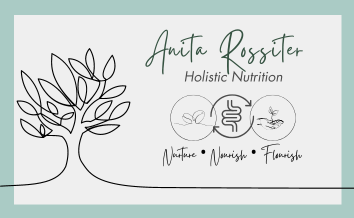|
I can say that nearly every woman that walks through my doors displays hormonal symptoms. Inability to lose weight, mood swings, PMS, fatigue, depression, blood sugar changes, food reactions, breast cancer/changes etc.
But it is all well and good to provide hormonal treatments to try and treat the symptoms but unless that underlying gut and liver issues are dealt with these hormonal swings will NEVER go away (and we live with an increased risk of not just hormonal cancers but type 2 diabetes (insulin and leptin resistance), metabolic syndrome and some autoimmune disorders including lupus). A big explanation as to why as women with this, great eating and exercise regimes are often not enough. Estrobolome! Something women suffering any symptoms of oestrogen dominance may want to learn more about! First of all what are symptoms of oestrogen dominance?
These symptoms can further lead to:
By now you may have heard about the microbiome - this is the diverse community of bugs that inhabit our gut ecosystem. They provide us with what could be described as a second genomic blueprint (more than 99% of our genetic information comes from our bugs rather than our human genes). But have you heard of the Estrobolome? This could be integral in the presentation of all of these symptoms and disorders. This is the important link between hormonal disorders and gut health. An Associate Professor at New York University by the name of Claudia Plottel (MD) and her team have been looking in to the relationship between estrogen circulation and the microbiome - in particular how certain microbes can affect the risk of breast cancer. The research group is interested in exploring whether the microbiome contributed to the fact that "only a proportion of individuals exposed to individual carcinogens or carrying a genetic predisposition to cancer develop the disease." (Forum on Microbial Health, Washington US, 2014 http://www.ncbi.nlm.nih.gov/books/NBK189987/). They suggested that oestrogen-metabolising microbes may contribute to the development of oestrogen-related cancers (BRAC-1 and -2 genes) and explain why some women develop cancer and some don't despite having the genetic predisposition. But interestingly they talk about the estrobolome. This is a complete set of genes which are found in these microbes which code for enzymes that are capable of metabolising oestrogens within the human intestine. This is so so important in how our oestrogen is utilised in our bodies. These genes modulate the circulation of oestrogens within the liver, which then effects the amount of oestrogen circulating through the whole body. So when we are looking at hormonal disturbances, the gut must be considered along with the liver and ways to support and decongest. This has the potential to go a long way in explaining increased risk of many disorders and the inability to lose weight but also in explaining why despite many attempts to eat a good diet, have a great exercise regime and sleep well, there are underlying factors to be considered.
2 Comments
Warning - another controversial topic......
Before I start, please note that I appreciate that there are many illnesses that are caused by aberrations out of our control - on the most part, this post is referring to lifestyle illness in our Western world. Why in our culture do we expect, accept and then live with a diagnosis? We develop attachment to it and then have certain expectations of what it looks like to be in that state of dis-ease. We expect decline and assume (in chronic illness especially) that in 10 years time we won't be able to do certain things. We don't walk out of our appointments thinking that we can do something about our health, often we accept the diagnosis and then live with it. It is easy to be defined by a label or a diagnosis. It becomes our story. We start to plan our life around it, we say we can't do things because of it; we become limited by it; sometimes we blame it. Sometimes we become so focused on searching for that label in the first place that we begin to miss the simple daily delights. We can even hand over our power to other people and think it is their responsibility to "find" what it is that is wrong. Once given a diagnosis, we may blame drugs for not working, or blame our health care providers for not making us better. What role does our culture have on our health? So many diagnoses are expected to not have a positive outcome. But how can we evaluate an expected outcome in an environment of study where we are monitored, examined and focusing on looking for signs of illness. When surrounded by health professionals looking for further signs of illness, media giving us examples of the worst case scenarios, given expected time-lines, expecting progression of the illness, how can it not do exactly that. Often we receive a diagnosis and expect to carry that with us for life. Along with a diagnosis is often a pamphlet of what we should expect. EVERY day we receive messages from our external world about being sick. Have you had your flu shot? It is a life threatening flu this year... We have a whole month of awareness of certain diseases and we are constantly reminded of the devastating outcomes of these illnesses. And don't forget to stock up on anti-histamines as next week we launch into peak hayfever season........ It goes on and on. We receive constant negative messages about getting sick and often scare-mongering. I challenge you to recall how many messages a day you receive about wellness, happiness and great health? I struggled!! Zip.... What impact is this having on our health? We are not just a physical body. Our bodies are so incredibly intelligent. They operate in a manner that works to try and keep us in a state of health given all the right conditions (and by this I don't just mean food). But completely underestimated is the power of our thought processes on the state of our health. When I see someone (and I ask myself this all the time too) with exaggerated symptoms (be it mood changes, exhaustion, lowered immunity, increased food sensitivities, gut changes, big hormonal swings etc) I have stopped thinking about the immediate physical/physiological/pathological reasons for this. I think focusing on the physical body only we are missing the elephant in the room; we are completely underestimating the impact of the emotional, psychological and energetic components of our complex beings. We are not our diagnoses. So frequently we only treat the physical symptoms. Sometimes we get lucky and using surgery, drugs, diet change and therapies we can reverse these diagnoses. But we can only truly look at curing and healing when we look at ALL the aspects of our health especially the power of thought. |
Anita RossiterHolistic Nutritionist. Categories
All
Archives
April 2019
|





 RSS Feed
RSS Feed